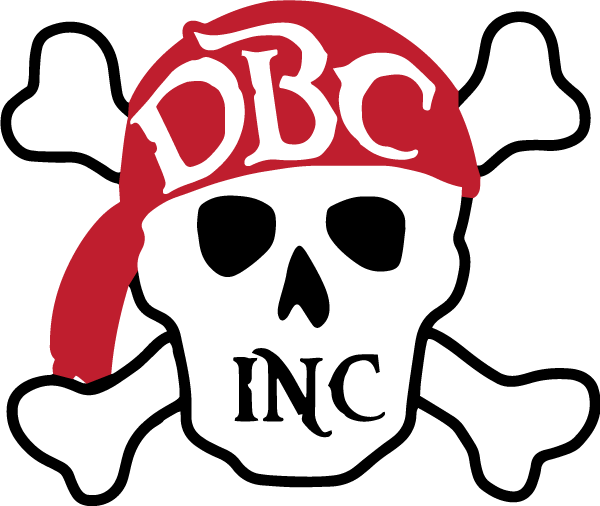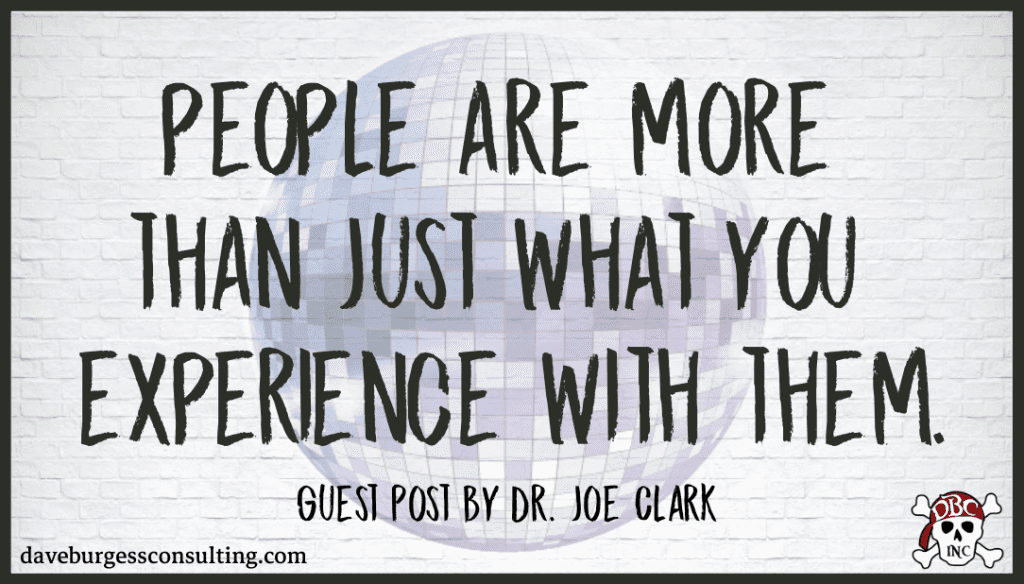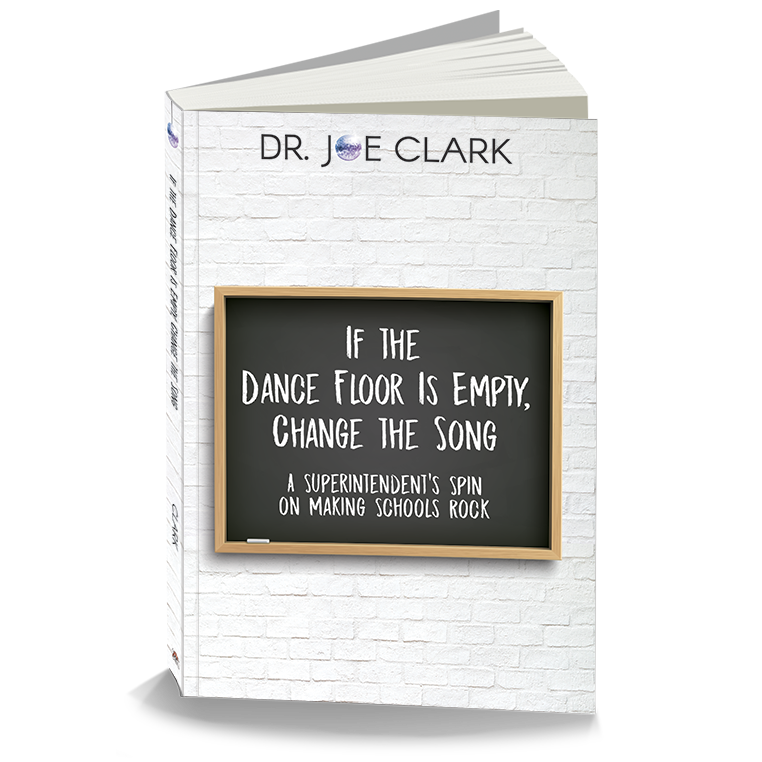Have you read If the Dance Floor is Empty, Change the Song by Joe Clark?
What can a deejay teach us about the classroom? What does a superintendent do besides decide when to close school for snow? What makes someone a great teacher or a great principal? Joe's book is a collection of essays, where he answers these questions by offering a model for compassionate, principled, and student-centered school leadership. In the process, If the Dance Floor Is Empty, Change the Song offers leaders a handbook for placing kindness, community, and diversity at the heart of successful education.
Full of humor and resilience, Clark’s essays beam with as much range as they do insight. He dives right into issues like changing instructional standards, increased reliance on testing, and anxiety about social media in schools—and others—while providing collegial advice that new school leaders in particular will find indispensable. You will want to click the links below his guest post to learn more!
But, for now...
I appreciate the lessons Joe shares in this heartfelt post.
Guest Blog by Joe Clark
A few weeks ago, I heard a story about my dad that happened 40 years ago, a story that I had never heard, and a story that made me look at him in a new way.
In my book, I tell the story of my sister Kelly, a teacher who battled cancer most of her life, starting when she was a freshman in high school. I also talk a lot about growing up the youngest of 11 kids and some of the trauma I faced as a child.
So, last week my sister Kim finished reading my book, and she called me on the phone in tears. This was the first she knew learned the details of my trauma, and it caused her to remember the story about my dad, which she shared with me.
The story goes like this. When my sister Kelly was in the hospital battling Hodgkin’s disease, my parents were struggling to balance the time and money it took to care for a sick child as well as be active parents for ten other kids, especially the three of us who were younger than Kelly (I had just turned 10 years old at the time).
My dad was working double shifts at the rubber factory to earn enough money to pay the hospital bills. One night he got home late in the evening, as usual, and Kim (about 20 years old at the time) offered to drive my dad to the hospital to visit Kelly. My dad hadn’t eaten all day, and Kim offered to run him through the Burger King drive-thru on the way the hospital. Dad refused. Hospital visiting hours for family were soon to end, and he wanted to see Kelly.
They got to the hospital with about 20 minutes to spare, and dad spent those minutes visiting his youngest daughter, bravely fighting cancer from her hospital bed. Soon the announcement came that visiting hours were over, and Dad was broken up that he only had 20 minutes with Kelly. Kim encouraged Dad to stay longer, but he was always a respecter of rules. Kim and dad walked out, heading to Burger King for a sandwich before going home for the evening.
In the car, dad broke down sobbing. He kept saying, “I don’t know what to do. I just don’t know what to do.” He said that he couldn’t afford the hospital bills so he had to work the double shifts. And he said he felt incredible guilt that he could barely spend any time with Kelly. And he said he felt incredible guilt for “the little kids” at home—me and Mike and Paul—who he had all but abandoned, in his opinion, taking care of the other things going on in his life.
Kim said it was the most gut-wrenching moment she had ever spent with Dad. Seeing a parent cry can be so unsettling, and to be smacked in the face with the reality that those people you view as heroes are just as vulnerable as the rest of us can be frightening.
Dad died about three years ago, and I always had a sort of opinion that he just liked work more than spending time with family. I could not have been more wrong. Dad was a guy who loved his family so much that he made an incredible sacrifice—the sacrifice of not being able to be around those he loved—so he could see that we were cared for.
As I think about Dad in that moment, sobbing in front of his daughter, totally uncertain of what he was to do, it shakes me to my core. And it makes me think two things.
One, people are more than just what you experience with them. So often we label people as being something or another, when the fact is all we ever really know about anybody is a tiny fraction of who they really are. It’s arrogant to say that this person is lazy or that person is cheap or this person is rude or that person is bitter. Regarding others, we literally only see a tiny fraction of their actions, and hear a tiny fraction of their words, and know none of their unspoken thoughts. We need to spend far more time seeking to understand others instead of judging others.
Two, when it comes to life as educators, we need to remember that every family has a story we know nothing about. I can only imagine a group of teachers in 1980 sitting around a lounge the morning after my folks were no shows at conferences, saying, “that Joe Clark’s parents are not supportive at all,” when in reality, school took—and should have taken—a back seat to other pressing family matters at the time. While we should make every effort not to judge others in our lives, we must work doubly hard not to make such judgments of our students and their families. We don’t know who is battling illness, unemployment, chemical dependency, or any other myriad challenges life throws at us.
Instead, let’s do this: love people unconditionally; show mercy when they fall, and help pick them up; avoid patting yourself on the back thinking you are a better parent or person than they are; thank God for the good in your life; and serve others so that they may experience good as well.
- Joe
Thanks, Joe!
What a heartfelt story and reminder, Joe! Thank you for sharing your vulnerability with us.
Friends, if you don't already, please follow Joe Clark for more incredible content right HERE and his website right HERE. And, do check out his book. It's incredible! Simply click the link below, scroll down to "Free Preview" and take a peek at the first few chapters absolutely FREE. Let us know what you think.
If the Dance Floor is Empty, Change the Song
Leading schools with courage, intention, and honesty.
More info →





